First-year oral arguments are an annual rite of passage for all J.D. students at the University of Virginia School of Law.
For several days in the late spring each year, about 300 first-year students argue an appellate case before a panel of judges, typically two alumni or local attorneys and a second or third-year student serving as a Legal Writing Fellow. The 1Ls also prepare and submit a brief in advance of their argument date. The event serves as the culminating assignment for the Legal Research and Writing Program courses led by Professors D. Ruth Buck ’85, Joe Fore ’11 and Sarah Stewart Ware.
It's also an organizational feat to pull off.
“On any given night, 32 to 36 students argued,” Buck said of the event this year. “On Saturday [April 9], 104 argued. But the effort is well worth it and it’s such an important learning experience for our students. They not only have to have a mastery of the material, but they have to keep their composure in the face of often intense questioning from the judges, all while making sure that they get their key points across.”
Each panel of judges hears two sets of arguments a night. The school hosted 152 volunteers this year from the UVA Law community and beyond.
In a Brown Hall room on April 13, first-years William “Trey” Ratliff and Elizah Stein made their arguments. The case involved music mashups as copyright infringement — the appellee had digitally sampled a small but arguably important part of the appellant’s copyrighted sound recording.
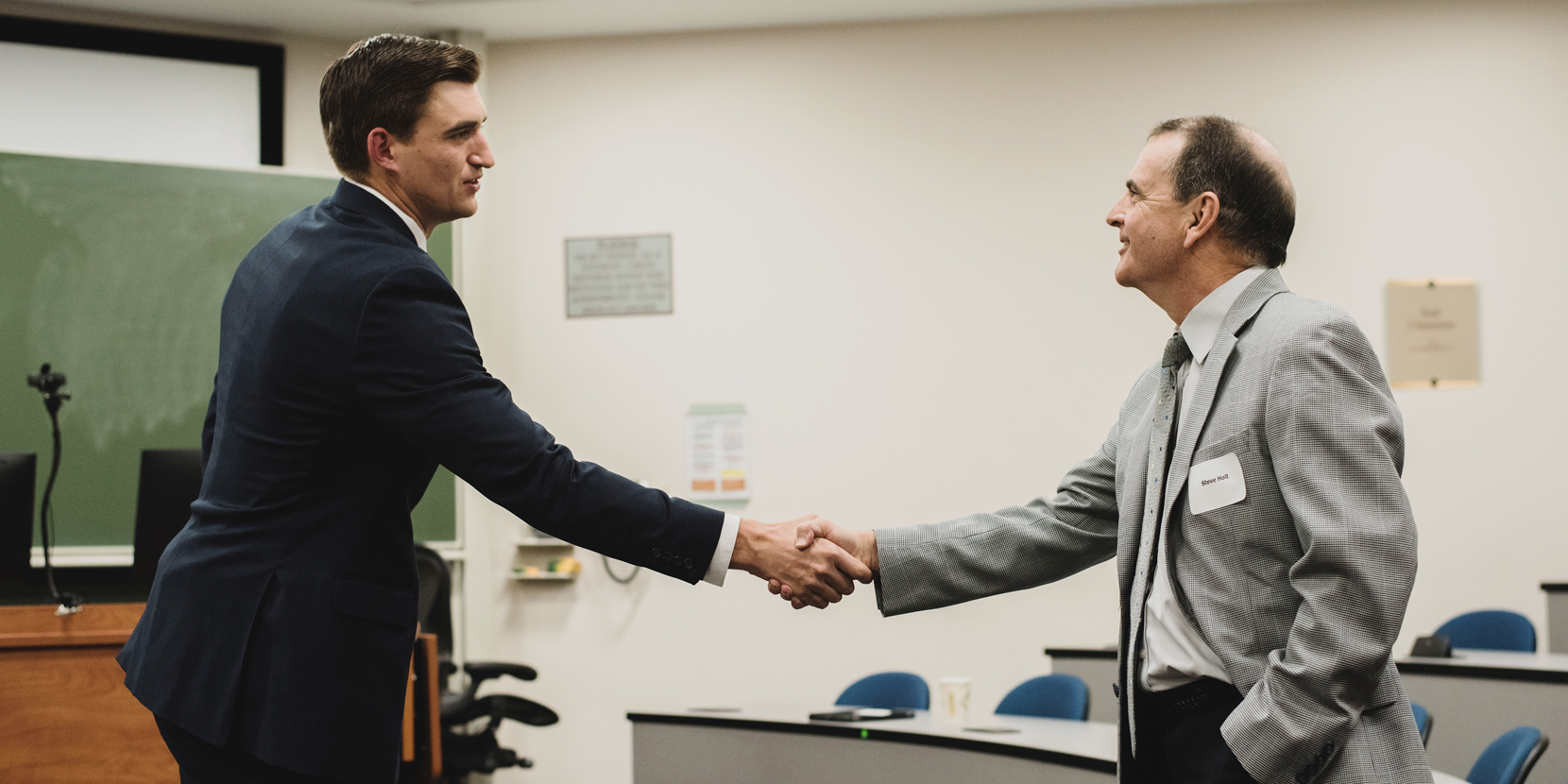 Before the argument, Ratliff shakes hands with judge Steve Holt ’83.
Before the argument, Ratliff shakes hands with judge Steve Holt ’83.
After Ratliff completed his appellate brief two weeks prior, he began to review his brief, his opposing counsel’s brief and the case record in preparation for oral arguments.
“I spent the week of the argument refining my points and practiced delivering my argument while my section mates — Joe Cartledge, Henry Adams and Noah Huffman — played the roles of judges and asked me questions on the topic. These practice sessions were extremely rewarding and helped me view the topic from different points of view,” Ratliff said.
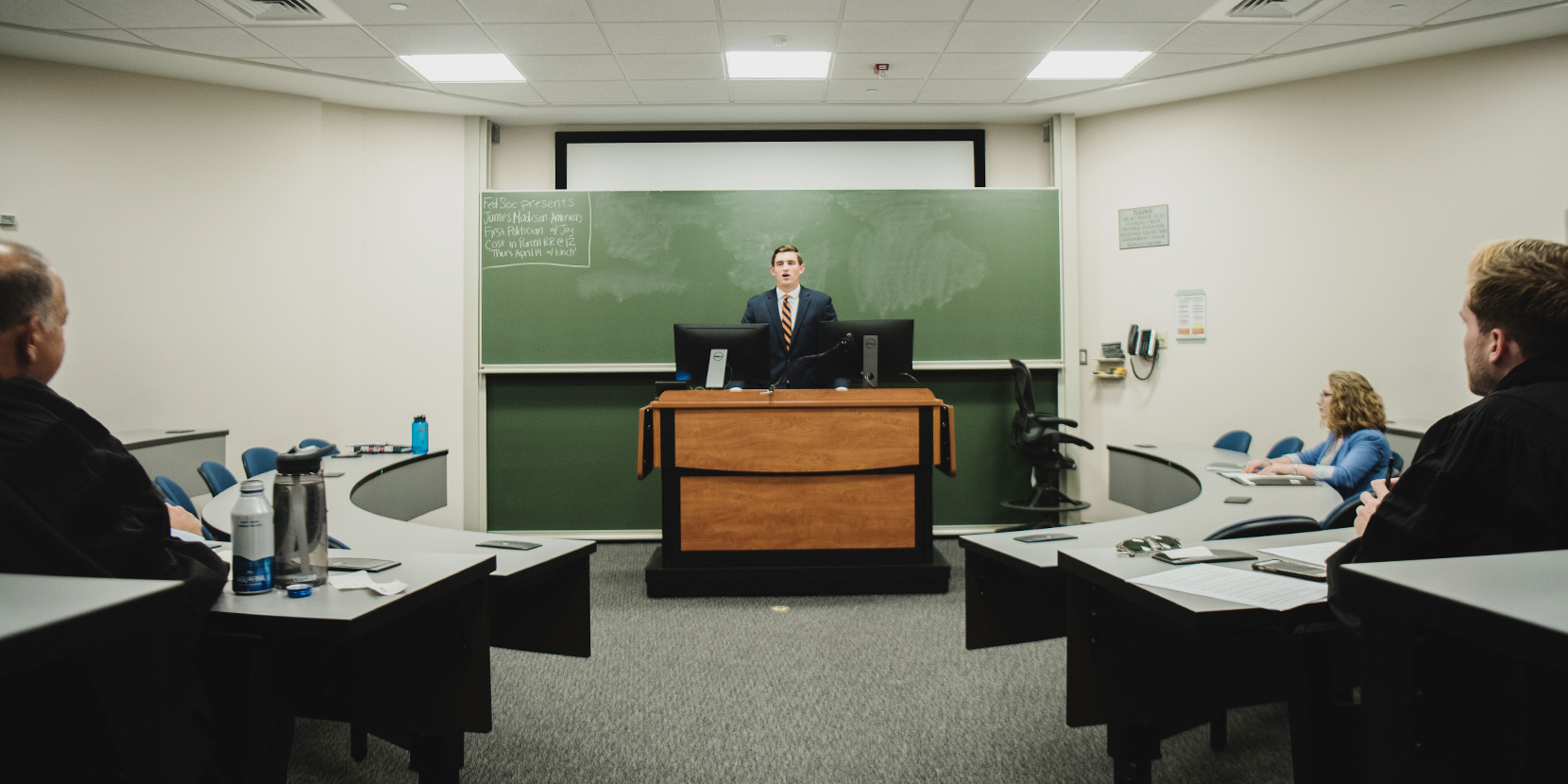 Each side has 15 minutes to argue their case, with the representative for the appellant, Ratliff, arguing first.
Each side has 15 minutes to argue their case, with the representative for the appellant, Ratliff, arguing first.
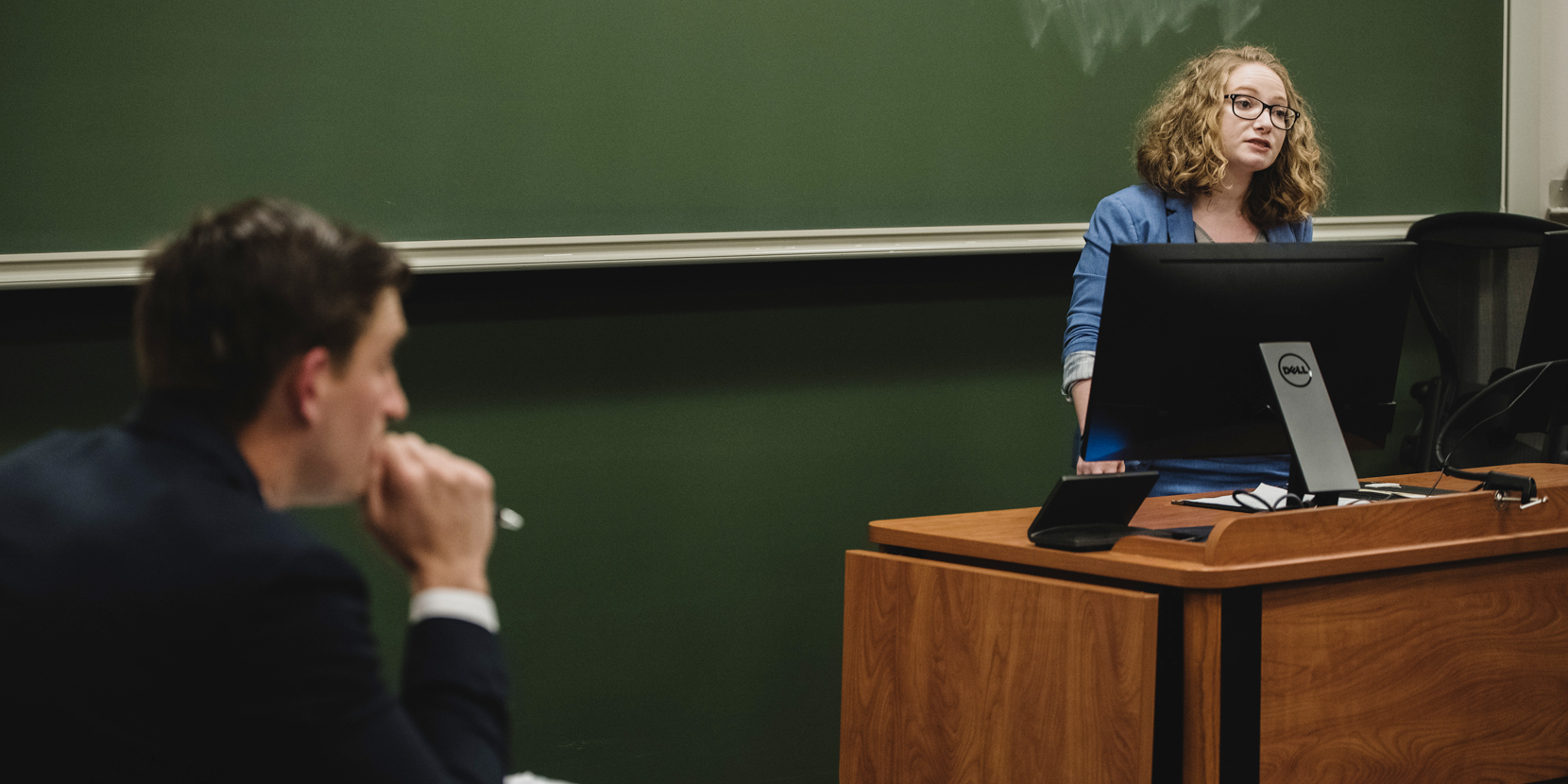
Stein argued for the appellee. “I really enjoyed the opportunity to test out litigation skills in the oral argument,” she said.
“Going through the whole process in slow motion — research, memo-writing, making careful arguments in the brief, and becoming familiar enough with the relevant law to answer questions about my arguments with minimal notes — was fascinating, and it let me really delve into the legal issue at play,” she said.
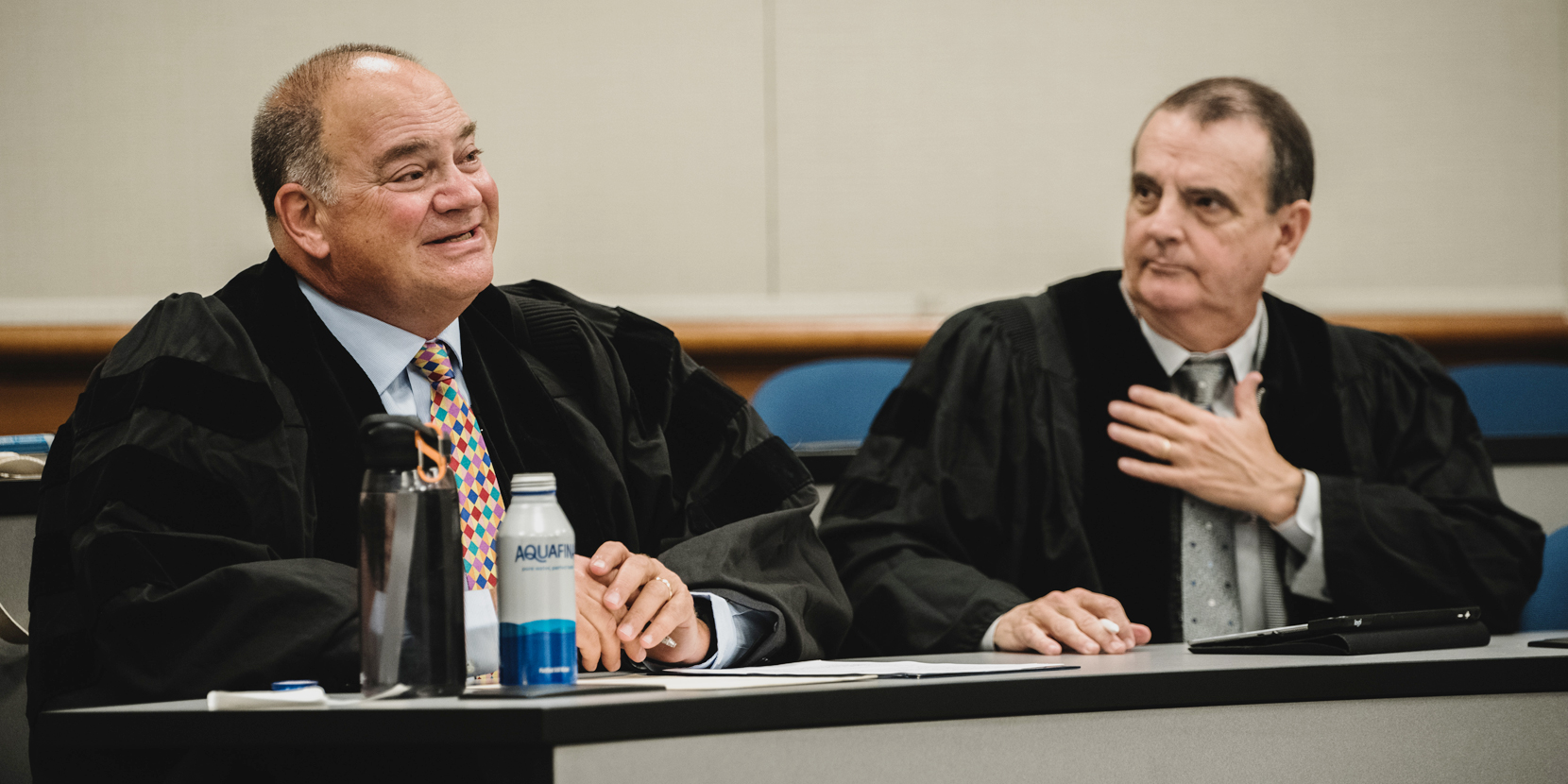 Judges John Singer and Steve Holt ask questions during the argument.
Judges John Singer and Steve Holt ask questions during the argument.
The judges receive a bench brief, the case record and the four student briefs about two weeks before they judge.
“They are well prepared and take it seriously,” Buck said, noting that the recruitment process begins in December. “Each year we have many returning alumni judges and some who haven’t participated in the past.”
Holt, an expert in construction law who practices with Katz Barron in Florida and who has taught as a lecturer at the school in the past, said the problem was similar to one he had as a student at his first-year oral argument in 1980. His case concerned whether a rhythm track of a song could be used in a parody song.
“Professor [Thomas] Bergin was my judge, and when I was making a point about how rhythm was too generic to copyright, he asked me to sing the theme song to ‘Bonanza’ then asked if it was rhythm or melody,” Holt said. “After humming it poorly and watching him laugh at my efforts, and argument, I rambled on. But obviously never forgot the humor and the point.”
He added that he did not ask the students to sing, “but we did try to create a couple of moments of fun that some may recreate if they remember it when they return to do this in 30 years.”
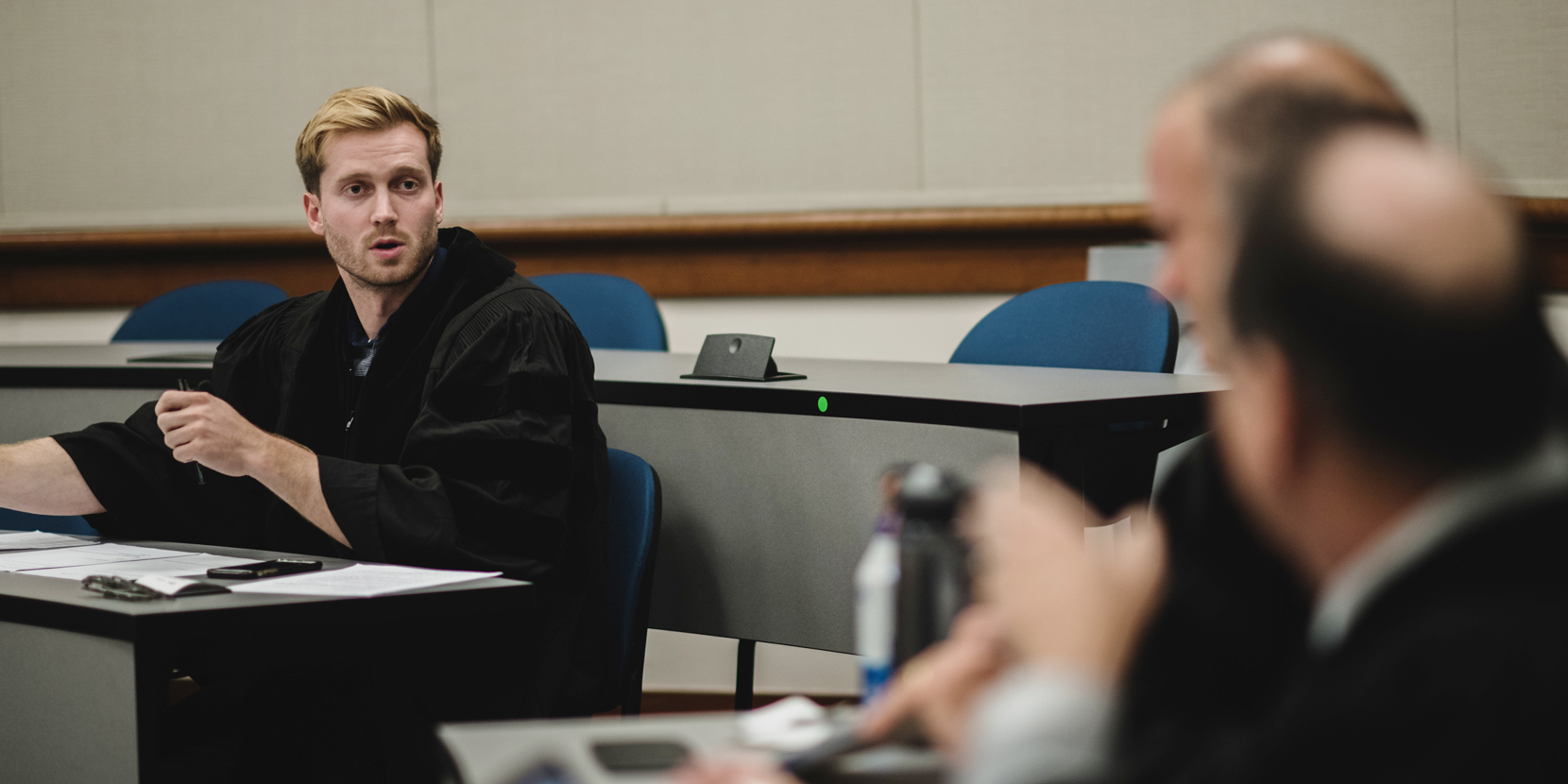 The judging panel included Legal Writing Fellow Doyle Tuvesson, a second-year law student.
The judging panel included Legal Writing Fellow Doyle Tuvesson, a second-year law student.
Legal Writing Fellows work closely with the legal writing faculty and with first-years on reviewing and commenting on papers throughout the year.
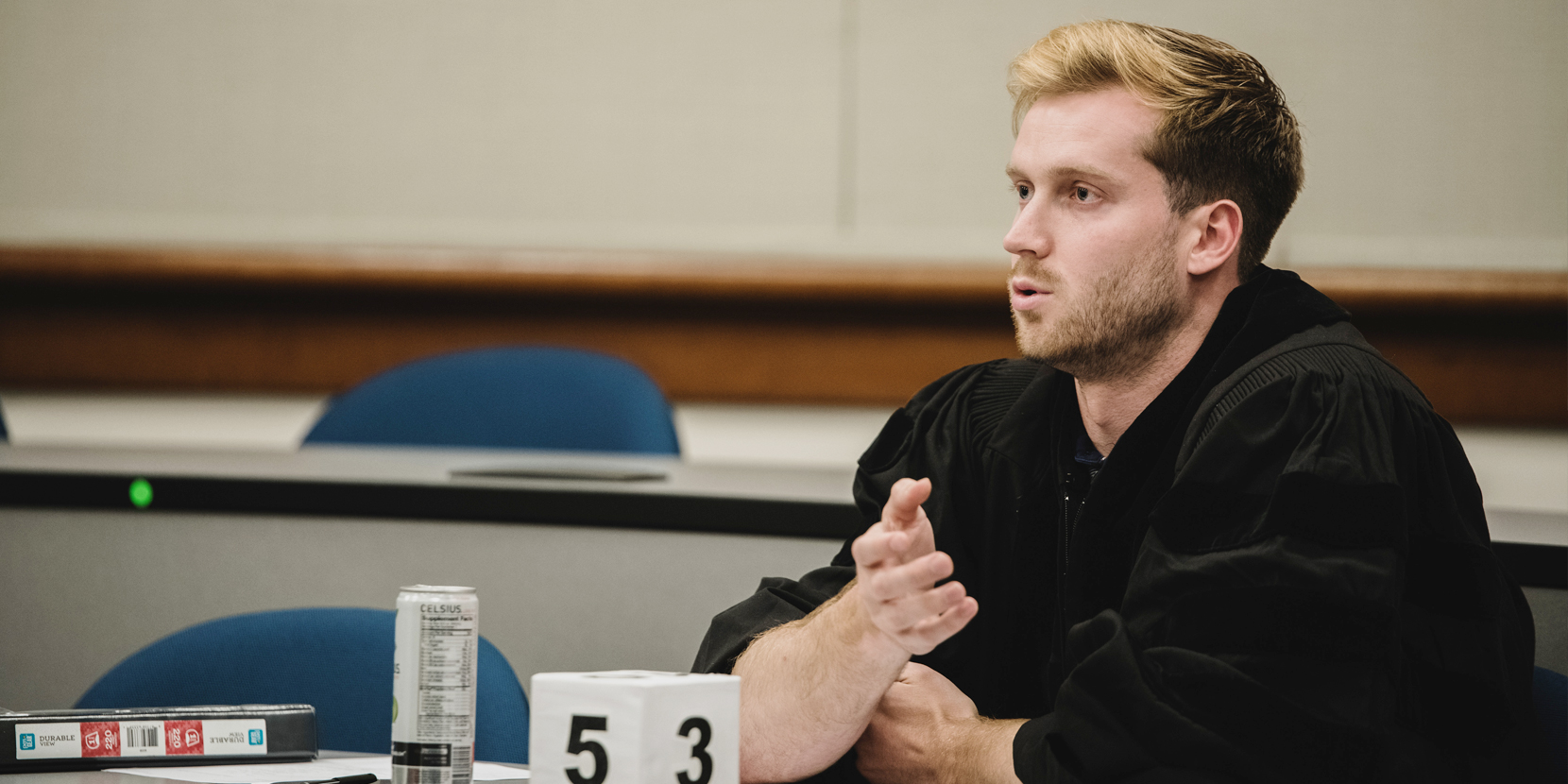
“Being on the other side of the bench was an enriching experience,” said fellow Doyle Tuvesson, a second-year student who served on the judging panel. “You notice many slight differences that separate a good advocate from a great advocate. The feedback from the guest judges was excellent, and I believe I got more out of judging this year than arguing last year, because I was not clouded by nerves and anticipation.”
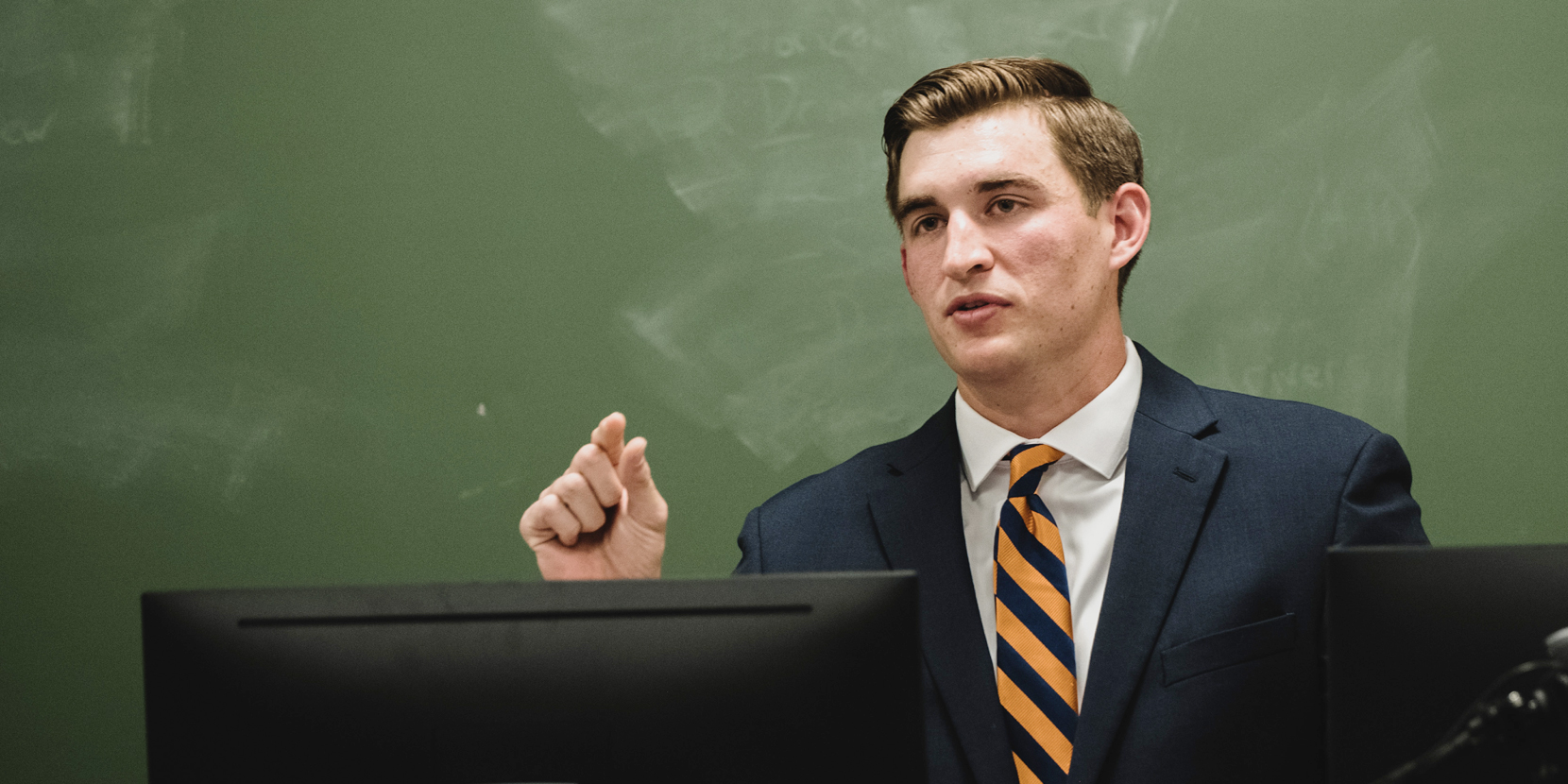 Ratliff makes his rebuttal argument after Stein presents.
Ratliff makes his rebuttal argument after Stein presents.
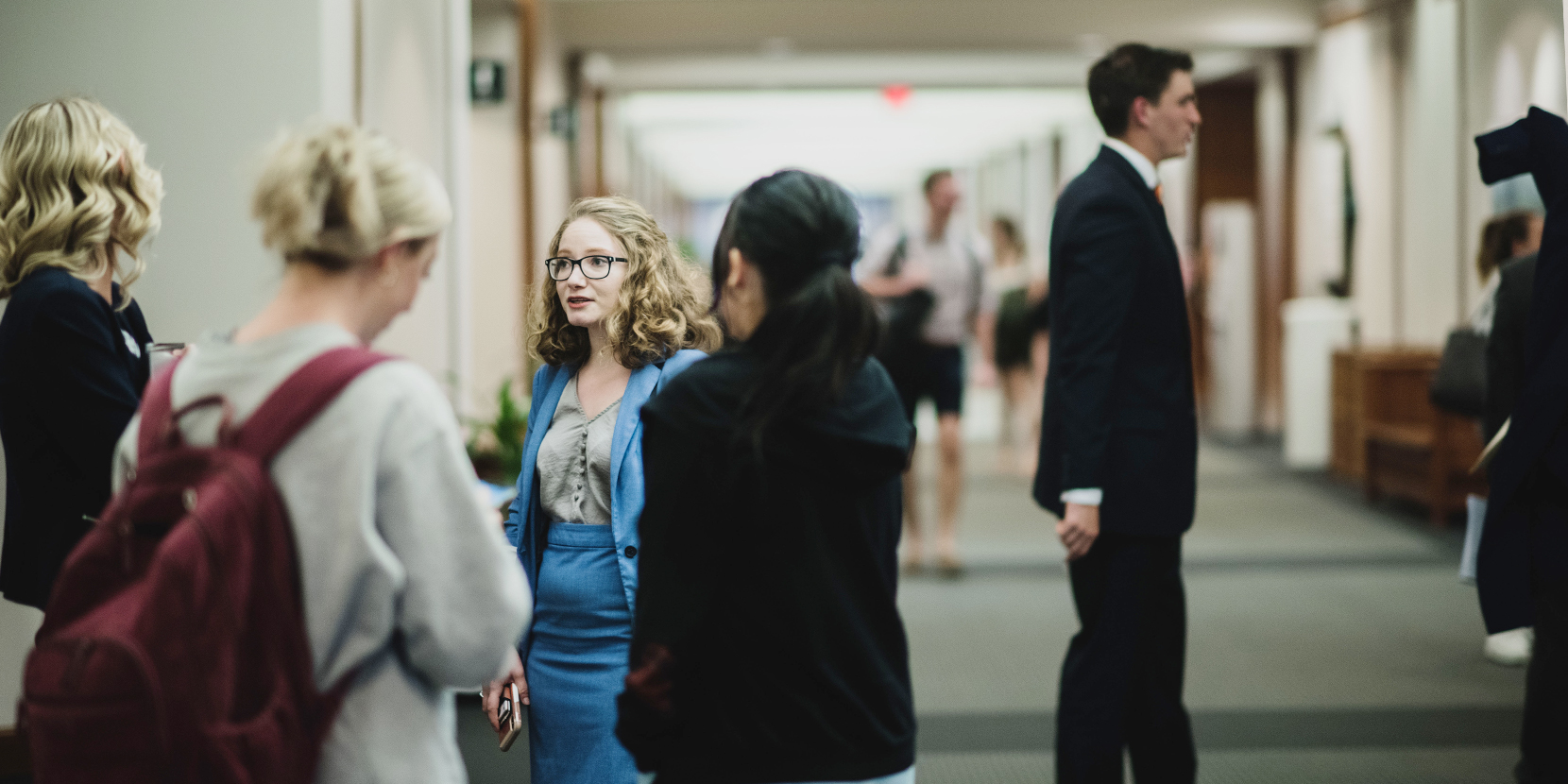
After the rebuttal, the judges ask the student advocates to step outside for a few minutes while they confer. When the advocates return to the room, each judge gives feedback to the advocates.
Holt said he and his judging partners wanted to “emphasize what our experience has taught us, which is to spend the time at argument going at the key differences between the parties and hammering why you are right and your adversary is wrong.”
He added, “we were impressed with the professionalism and demeanor of the students — far ahead of me at that stage.”
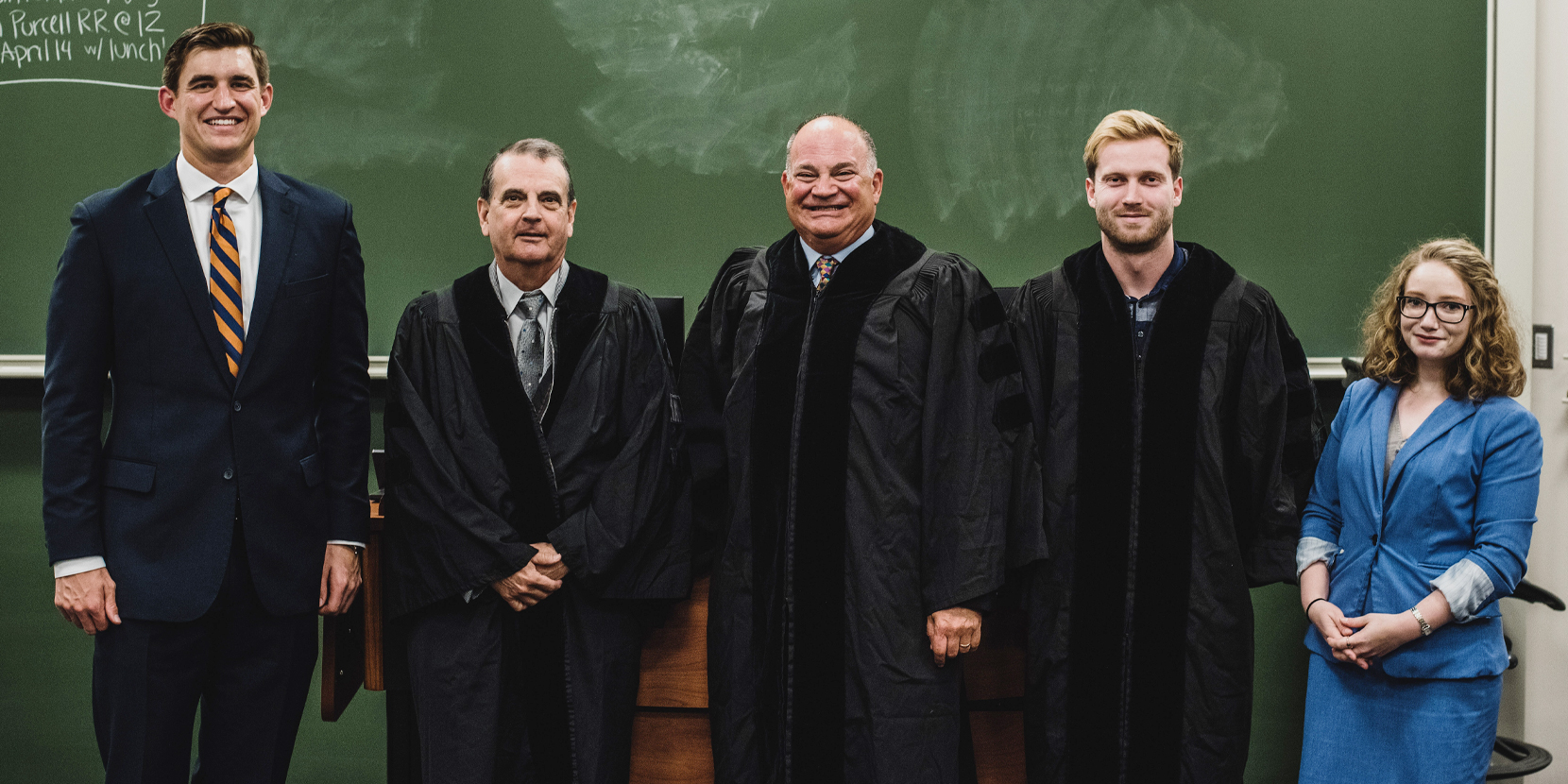 Ratliffe; judges Holt, Singer and Tuvesson; and Stein pose for a photo. Each night after the first-year arguments, judges and advocates join an evening reception.
Ratliffe; judges Holt, Singer and Tuvesson; and Stein pose for a photo. Each night after the first-year arguments, judges and advocates join an evening reception.
“I think it was a little nerve-wracking for everyone, but our judges provided extremely helpful feedback, and it was a great chance to try out real professional skills in an academic environment,” Stein said.
Ratliff, who is also a first lieutenant in the Army, said he is likely to litigate as an Army JAG officer after graduation.
“The oral argument experience helped me better understand what to expect and what aspects I need to improve upon as I progress in law school,” he said.
Founded in 1819, the University of Virginia School of Law is the second-oldest continuously operating law school in the nation. Consistently ranked among the top law schools, Virginia is a world-renowned training ground for distinguished lawyers and public servants, instilling in them a commitment to leadership, integrity and community service.


